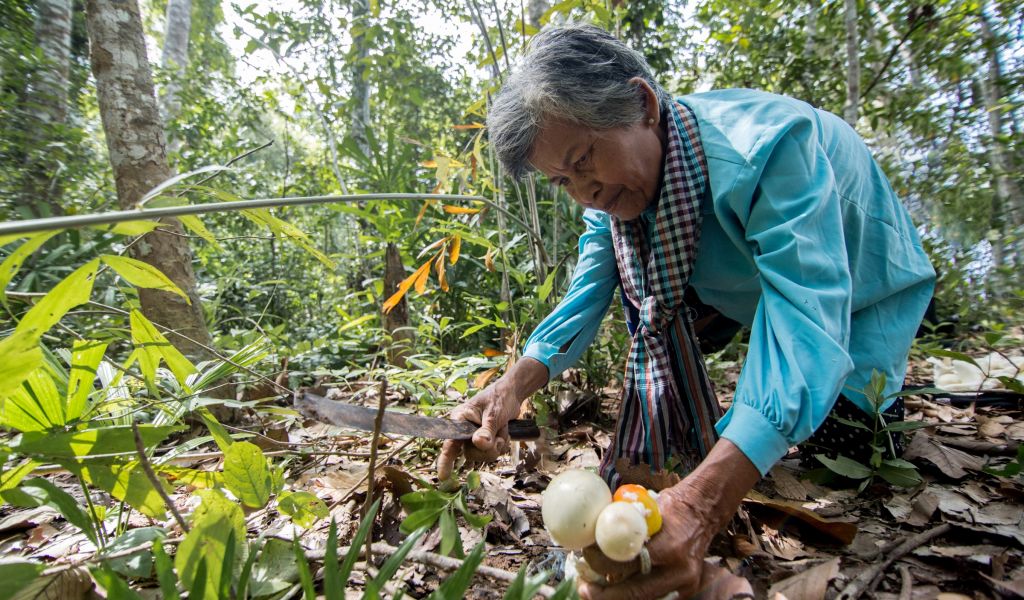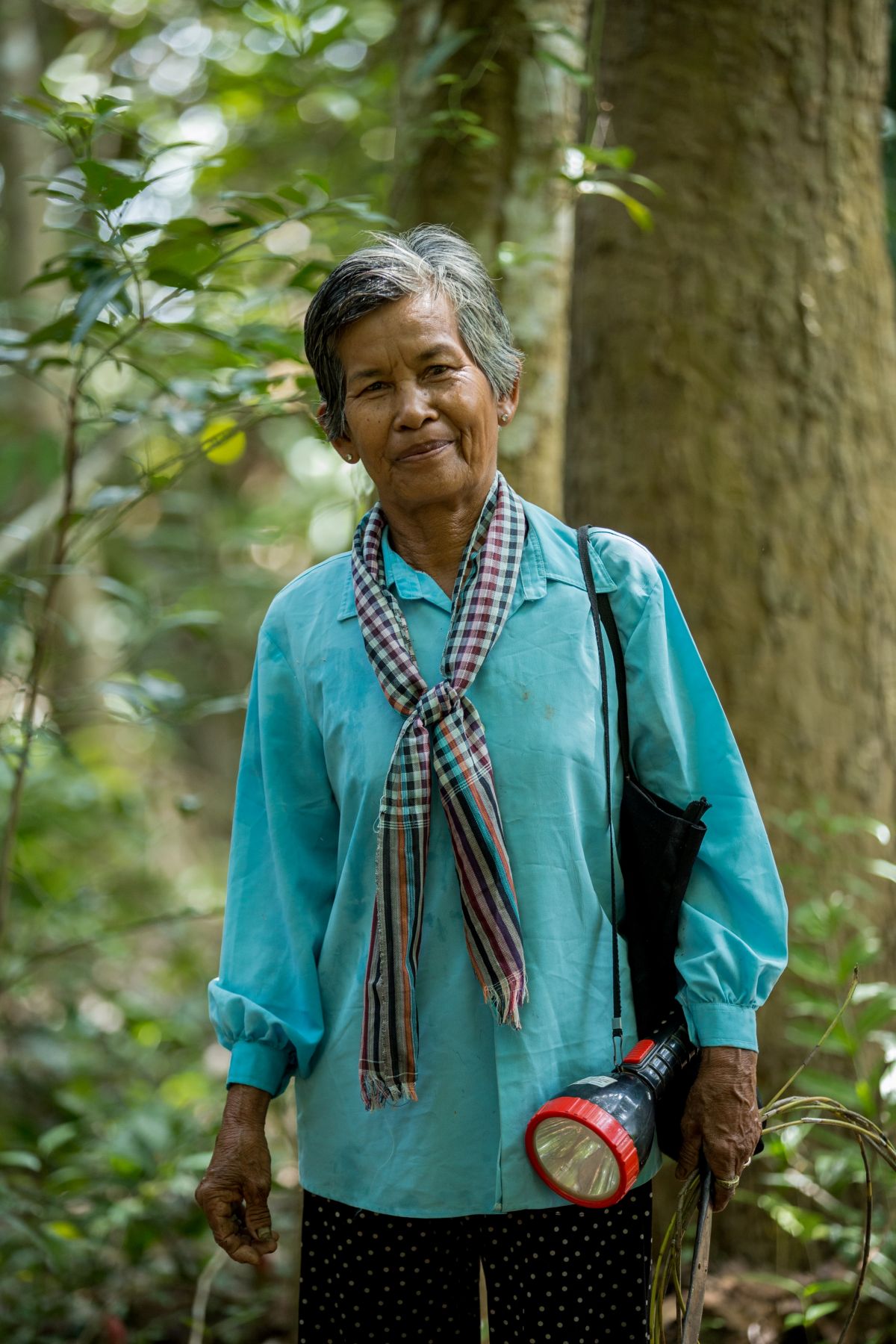Community-led credit scheme in Cambodia opens space for women to participate in forest governance, protecting the forest and stopping illegal logging

In Cambodia it is common to hear only men speak about forests and natural resource management. That’s because for generations, forestry institutions have denied women a voice in decision making despite their extensive knowledge of the landscapes they live in and depend on.
Today, a community-based forestry credit scheme in Cambodia is opening space for women to participate in making decisions about forests and improving the health of forests. The experience confirms the research that shows that increasing female participation in forestry strengthens management and conservation efforts and promotes sustainable livelihoods. This is because women have untapped skills to manage natural resources sustainably.
The community forest credit scheme began in five communities in 2015 in Cambodia’s Prey Lang landscape, one of Asia’s most important wildlife hotspots. It has since expanded to 21 communities, and the movement is still growing.

The program provides financial resources that community members use to invest in their landscape. Community members make the decisions about where and how to invest the funds. For example, some are giving high priority to investing in patrolling services to stop illegal logging.
This credit scheme is one of the first programs in Cambodia that allows communities to finance forest management themselves. More than 50 percent of the 742 members are women.

The effects of increasing the participation of women are highly visible in Thbong Domrey, a village 15 kilometres outside Kampong Thom’s provincial capital, Stueng Saen Municipality. While their community forestry management committee is mostly male, the committee that manages the credit scheme includes key female leadership.
“When women participate in the community forestry credit scheme, they are able to engage more in the management process,” says Lok Lai Seurng, deputy chief of the credit scheme. “This is because they are better informed about what is happening and can decide how the credit scheme funds are used to best manage the forest.”
Lok Lai Seurng and other community members see patrolling as a top priority.
“Now we have a budget to pay people to protect the forest,” she said about the money raised from the scheme.
This shift has improved the health of the forest and generated income for people.
“Our forests are improving,” says Heng Thoin, the chief of credit scheme and Lok's co-manager. “Now there is no illegal activity because we have strong patrolling.”
RECOFTC created the credit scheme with Cambodia’s Forestry Administration, with support from Swiss Development Cooperation. These efforts are currently expanding through the Swiss-funded Partnerships for Fisheries and Forestry (PAFF II) project.

